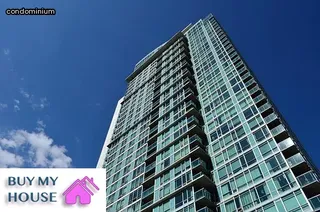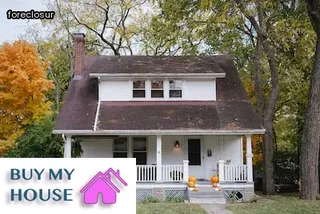The Michigan Condominium Owners Association (COA) and Homeowners Association (HOA) lien laws are regulations that allow an association to foreclose on a house if the homeowner fails to pay their dues. The law states that once the delinquent payment is 30 days late, the HOA or COA can impose a lien on the property.
This lien will remain in effect until all fees, assessments, fines and interest charges have been paid in full. After 180 days, if the homeowner has not settled their debt with the association, they can initiate foreclosure proceedings against the property.
Alongside this, Michigan law also allows HOAs or COAs to place a notice of delinquency on public records so other potential buyers will be aware of any unpaid dues before going through with purchasing a home from an owner who may be delinquent in their payments.

Homeowner's Associations (HOA) and Condominium Owner's Associations (COA) in Michigan have the power to collect overdue dues from homeowners by way of a lien and foreclosure. A lien is a legal claim against a property that is used to secure payment of a debt, while foreclosure is the legal process of evicting a homeowner from their home due to unpaid dues or fees.
To understand how HOA or COA liens work generally, it's important to know what steps are taken when dues go unpaid. Generally, an HOA or COA will send out notices informing members of their delinquency.
If the member still fails to pay, then the association can file for a lien with the local register of deeds or county clerk's office. This lien gives the association priority over other creditors if the homeowner defaults on their mortgage.
Once the lien has been filed, it must be foreclosed upon in order to satisfy the debt owed. The foreclosure process begins with sending out notices of default and intent to foreclose.
If no action is taken after receiving these notices, then an auction can be held where potential buyers can bid on the delinquent homeowner's property. The HOA or COA would receive payment from whichever bidder wins at auction and may use that money towards covering any remaining balances due on past due accounts.
In Michigan, homeowners’ associations (HOAs) and condominium owners’ associations (COAs) have the right to foreclose on a house if the homeowner fails to pay dues. It is important for Michigan homeowners to understand the process of foreclosure in order to protect their rights.
According to state law, HOAs and COAs must file a lien against the property if payment has not been received within 45 days of when it was due; they are then allowed to proceed with foreclosure proceedings if payment has still not been made after 180 days. The best way for a homeowner to avoid foreclosure is by making sure dues are paid in full and on time.
In addition, HOAs and COAs are required by law to give advance notice before taking any legal action against a homeowner for delinquent payments. This gives the homeowner one last chance to make good on what they owe before facing foreclosure or other measures such as wage garnishment or bank account levies.
Understanding how HOA and COA liens work in Michigan can help homeowners stay informed about their rights and take steps prevent foreclosure from happening.

Michigan Homeowners' Associations (HOAs) are empowered to foreclose on homes for unpaid dues, in some cases even if the property is encumbered by a mortgage. This can be a difficult situation for both parties involved.
The homeowner may not be aware of the HOA's right to impose a lien against their house and the mortgage lender may not understand the implications of such a lien. It is important to explore this relationship between HOAs and mortgages because it can have far reaching consequences.
In some cases, an HOA or COA lien has priority over a mortgage, meaning that the association could foreclose first if payments are not made. However, if a lender is aware of the potential for an HOA or COA lien to take precedence over the mortgage, they may have additional restrictions in place or require higher payments from homeowners.
Ultimately, understanding how these liens work and how they interact with mortgages is essential for Michigan homeowners who wish to protect their assets from foreclosure.
When it comes to foreclosures, homeowners' associations in Michigan should always seek legal advice prior to initiating the process. Although foreclosing on a house for unpaid dues is an option, it is not one to be taken lightly.
Homeowners' associations should be aware of their rights and the legal implications of foreclosure in order to protect themselves from any potential liabilities. It's important to understand all laws and regulations within the state of Michigan as well as any restrictions that may apply depending on the type of association.
Additionally, understanding the limitations associated with filing a foreclosure complaint will help ensure that all steps are taken properly and in accordance with Michigan law. Finally, seeking proper legal guidance can help an association make sure it does not violate any federal or state laws when taking action against delinquent homeowners.

The question of whether a Michigan homeowner's association (HOA) has the authority to foreclose on a property for unpaid dues is an important one. In Michigan, HOAs are authorized to file legal action in order to collect on delinquent assessments and fees.
Homeowners who fail to pay their dues can be subject to lien foreclosure, which means that the HOA can take ownership of the property in order to satisfy the debt. A lien foreclosure typically occurs when homeowners have failed to pay their dues for more than three years, but they may also occur sooner if there are significant amounts due.
The process begins with the HOA filing a complaint in court seeking permission to foreclose on the property or pursue other legal remedies. If granted, the HOA will send a notice of delinquency and intent to foreclose by certified mail before filing a foreclosure action in court.
Once approved by the court, the HOA can then take possession of the property and either sell it or rent it out until such time as all outstanding debts are paid off. It is important for homeowners to understand their rights concerning any potential foreclosure proceedings so that they can make informed decisions about how best to protect their interests.
Preventing a condo association foreclosure can be difficult, but there are strategies Michigan homeowners' associations can use to avoid the costly and lengthy process. To start, it is important to clearly communicate with all members of the association regarding their dues payments and any other obligations they may have.
This should include providing ample notice ahead of time regarding when dues are due and outlining any penalties for late payments. It may also be helpful to offer flexible payment options, such as online payment methods or payment plans.
Additionally, it is important to have a clear understanding of the rules and regulations outlined in the governing documents that regulate the association's power to foreclose on a house for unpaid dues. If a homeowner does not pay their dues, it is crucial for the association to take action quickly by sending out reminders and filing legal notices in order to protect their rights as an association under state law.
By taking these steps, Michigan homeowners' associations can ensure that they have taken reasonable measures towards preventing a condo association foreclosure from occurring on one of its members' properties.

The process of foreclosing on a house in Michigan due to unpaid homeowners' association (HOA) dues is complex and requires careful attention to detail. It is important for HOAs to understand their legal rights as well as the specific rules that are outlined in their governing documents.
The actions of HOAs should adhere to the regulations set forth by the state of Michigan and be handled with fairness, transparency, and consistency. Before beginning foreclosure proceedings, HOAs must provide adequate notice to the homeowner according to state and local laws.
This could include mailing out a letter or posting a notice at the property itself. During these proceedings, it is essential for an HOA to have effective communication with both the homeowner and legal counsel throughout each step of the process.
If all else fails, an HOA may proceed with filing a lien against the property or take it through foreclosure if necessary. Ultimately, navigating the unique challenges of an HOA foreclosure on a house in Michigan requires knowledge of state law as well as continued communication between all relevant parties involved in order to ensure fairness and accuracy throughout every step of this complex process.
Exploring the implications of an unpaid condo or homeowners association lien can be a complicated process for Michigan residents. Homeowners’ associations, often referred to as HOAs, have the power to foreclose on properties for failure to pay dues, just like any other creditor.
The procedures for foreclosing on an HOA-owned property in Michigan are largely similar to those of a mortgage lender and they are subject to state laws. Understanding how these liens work can help homeowners prepare in advance and plan accordingly if they find themselves in a position where their dues remain unpaid.
There are several distinct steps that a homeowner’s association must take before they can initiate foreclosure proceedings, but it is important to note that the timeline may vary depending upon the specifics of each case. Additionally, there are certain defenses that homeowners may be able to raise if they feel that the amount being charged is unjustified or excessive.
In all cases, it is advisable for Michigan residents facing an HOA lien to contact an attorney who specializes in real estate law for assistance regarding their rights and obligations under state law.

When Michigan homeowners' associations (COA or HOA) decide to foreclose on a house for unpaid dues, there are certain steps that must be followed in order to complete the foreclosure process. First, the association must provide written notice to the homeowner of their intent to foreclose and give them an opportunity to pay their dues or enter into a payment plan.
If the homeowner fails to comply with this notice, then the association can initiate legal proceedings against them. Once they have obtained a judgment from the court, they must file a lien against the property and provide written notice of the lien to both the homeowner and any other individuals who may have an interest in the property.
This lien will remain in place until all past due fees are paid in full. Finally, if payment is not made within a specific period of time, then the association can proceed with foreclosure proceedings against the home.
At this point, it is important for owners of Michigan homes subject to COA or HOA liens understand that they may lose their home if they fail to pay their dues on time.
Michigan homeowners' associations have the power to foreclose on houses for unpaid dues, and this could be a potential financial disaster for those who are already struggling. To avoid foreclosure, it's important to assess your individual situation and explore potential solutions.
It may be possible to negotiate a payment plan with the HOA that allows you to catch up on overdue payments over a period of time. If you're having trouble making payments due to financial hardship, contact the HOA board directly and explain your situation.
Many HOAs are willing to work with homeowners in order to avoid foreclosure. For some people, refinancing or taking out a loan may also provide a solution.
There are also government-funded programs available that can assist with mortgage payments and provide other forms of relief. Finally, don't forget that there are legal options available; speaking with an attorney who is familiar with Michigan foreclosure laws can help you understand your rights as a homeowner and determine which course of action may be best for you.
If you live in a Michigan neighborhood with a Homeowners' Association (HOA), then it's important to know what happens if you don't pay your HOA fees. In Michigan, HOAs have the power to foreclose on houses for unpaid dues.
This means that if you fail to pay your dues, the HOA can place a lien on your home and initiate foreclosure proceedings. The first step the HOA will usually take is to file a notice of intent to foreclose with the county register of deeds; this will let you know that they intend to pursue foreclosure if the dues remain unpaid.
If you still fail to pay the dues, the HOA may be able to sell or take possession of your home and all its contents in order to collect payment for the unpaid dues. It's important for Michigan homeowners with an HOA not only to be aware of their responsibility to pay their dues, but also understand how serious nonpayment can be and what could happen if they don't keep up with their payments.

Yes, Homeowners' Associations (HOAs) in Michigan are allowed to foreclose on a property for unpaid dues. According to Michigan law, HOAs have the right to initiate foreclosure proceedings for unpaid assessments.
While homeowners have some options for avoiding foreclosure, such as entering into payment plans or selling the home before the HOA takes action, ignoring the overdue amount can be costly. The process begins with a written notice of intent to foreclose sent by certified mail detailing any financial obligations owed and providing instructions on how to avoid foreclosure.
If no response is received within 30 days, an HOA can file a lien against the property and begin foreclosure proceedings. During this time, an owner may still be able to pay off their debt and avoid further action; however, if they fail to do so, the HOA has the right to take title of the property through judicial sale or eviction of its occupants.
Ultimately, it’s important for Michigan homeowners to understand their rights and responsibilities regarding dues payments in order to prevent serious legal consequences from occurring.
In Michigan, foreclosure laws allow homeowners' associations (HOAs) to take legal action and foreclose on a homeowner's house for unpaid dues. The process is initiated by the HOA sending a Notice of Intent to Foreclose to the homeowner, which serves as notification that the HOA has begun foreclosure proceedings.
The notice must contain specific information about the delinquency, any fees accrued during the delinquency period, and instructions on how to avoid foreclosure. From there, the HOA may proceed with filing a complaint in court or issuing a writ of execution.
If a writ of execution is issued, it allows the sheriff’s office to seize and sell the property in order to satisfy any outstanding debts. For HOAs, Michigan law permits them to collect past due amounts through either an administrative lien or an assessment lien; however, these are only viable options if their governing documents permit it.
Additionally, HOAs can pursue damages if they have suffered financial loss due to nonpayment of dues. Ultimately, understanding Michigan’s foreclosure laws is essential for HOAs when collecting past-due payments from homeowners and pursuing foreclosure actions if necessary.
It can take anywhere from a few months to several years for a home to go into foreclosure in Michigan. Homeowners' Associations (HOAs) are allowed to foreclose on properties within the state if dues or assessments are not paid.
This process typically begins with the HOA sending a letter of demand to the homeowner, giving them a certain amount of time to pay the overdue amount. If payment is not received within this time frame, the HOA can begin foreclosure proceedings.
The exact length of time it takes for a home to be foreclosed on in Michigan depends upon how quickly the homeowner responds and how long it takes for them to complete the necessary paperwork and legal processes that must be followed in order for foreclosure proceedings to move forward.